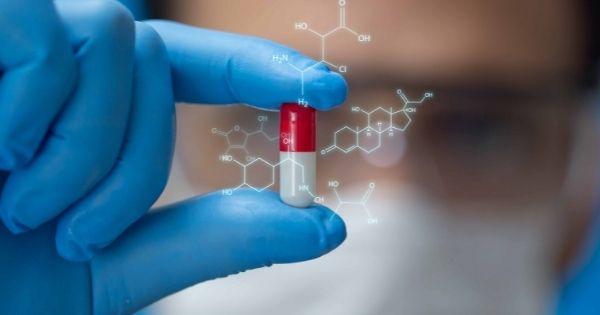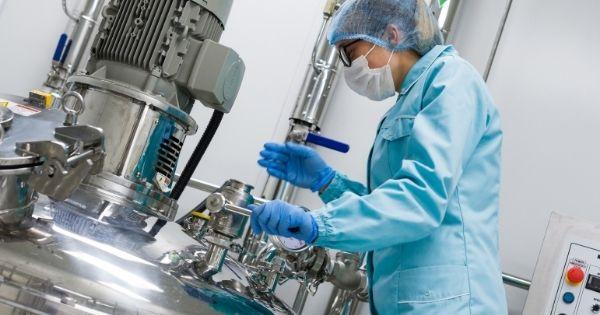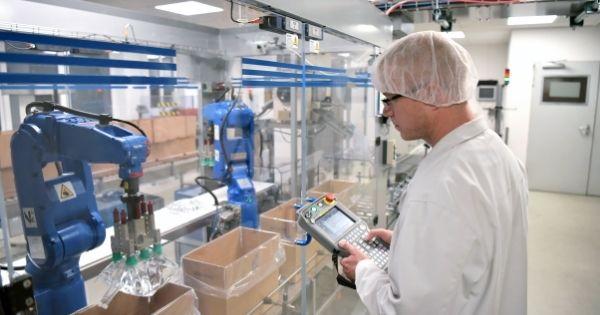
What is custom synthesis, and why is it important? Custom synthesis is a task that plays a significant role in the production of chemical compounds for active pharmaceutical ingredients (APIs). Many of the compounds used in pharmaceutical research and development projects today are either difficult to find or complicated to synthesize. Ergo, custom synthesis is an essential endeavor that companies must take for business. This process helps companies endure the lengthy clinical trial process and accelerate their drug products to the consumer market.
(more…)
Of all the elements found within the universe, hydrogen is indisputably the most abundant. Making up three-quarters of all matter, this element is essential to the material world. As an element, hydrogen has three distinguishing isotopes: hydrogen itself, deuterium, and tritium.
(more…)
The production of modern-day pharmaceuticals is a complex and lengthy process. Quality control is a main aspect of this process to ensure no impurities or toxic materials can harm a consumer. The presence of these undesired chemicals highly impacts the safety and performance of the product’s functional properties.
(more…)
Carbon is essential to life. The sixth stable element in the periodic table is what every living being is made out of—the foundation of a habitable and livable Earth. But how does carbon and its three isotopes impact our world today? We can trace its most prominent influence back 80 years ago, to the discovery of carbon’s long-lived radioisotope. Meet carbon-14—aka 14C. Radiocarbon is the rarest and most critical isotope to life on this planet in the past, present, and future.

Chemical reactions occur with the formation, rearrangement, or separation of chemical bonds. Essentially, reactions in chemistry change the bonds between molecules, atoms, and ions to originate fresh chemical combinations for application. These bonds may synthesize to form more complex structures or decompose to form simpler atoms.
(more…)
Since its modest roots dating back to the 8th century, the pharmaceutical industry has significantly progressed to reach its current eminent standing. Present-day pharmaceutical companies strive towards improving humanity's quality of life and furthering life expectancy. Drug manufacturers unceasingly use development and production approaches to supply safe and quality medicines to patients worldwide.
(more…)
Modern scientists and scholars continually research and develop new innovative tools and materials for biomedical applications. One specific sector of science has proven itself to be integral: radiochemistry. This field of study generates life-changing revolutions in patient care and management. As a branch of radiology, nuclear medicine utilizes radiochemistry to develop radiolabeled compounds for clinical trials and settings.
(more…)
Chemistry is more than mere tests and experiments, laboratory work and research, and dangerous or active substances. Chemistry is a fundamental science that exists everywhere. The field studies the property of matter, involving everything that humans see, hear, touch, smell, and taste.
(more…)
Radiolabeling is a specific scientific technique used to generate data for various applications. Within the pharmaceutical industry, radiolabeled APIs are an essential part of the drug research and development process. Isotopic radiolabeling is a challenging and multifaceted procedure due to the complexity of API synthesis. Chemists must select a metabolically stable labeling position and utilize a chosen radioisotope to formulate effective reactions and results.
(more…)
Quality management is an integral philosophy for consistently improving the quality of manufactured pharmaceutical products. The initial framework for total quality assurance in industrial organizations requires an assortment of regulated inspections, streamlined procedures, and standardized conditions. As quality standards continue to rise in the industry—and on a global scale—the necessity for continuous improvement also arises.
(more…)
Modern consumers may swallow thousands upon thousands of pills in their lifetime. As the world’s population continues to grow and develop—and medicine and science become increasingly innovative and progressive—the expectation that drugs and pharmaceuticals will multiply is logically sound. Medicine has profound effects on human life. It adds decades to lifespans, changes perspectives of the mind's inner workings, alters attitudes towards laws and principles, and creates sustainable options for those who would otherwise lack accessible alternatives.
(more…)
Within the field of chemistry, nuclide classes hold paramount importance. Nuclides are specified types of atoms customarily characterized by the number of protons and neutrons within their nucleus. Variants of different elements exist. Nuclides that contain the same number of protons but a diverse number of neutrons are classified as isotopes of an element. All isotope-specific atoms have categorically identical chemical behavior but diversified levels of radioactivity.
(more…)